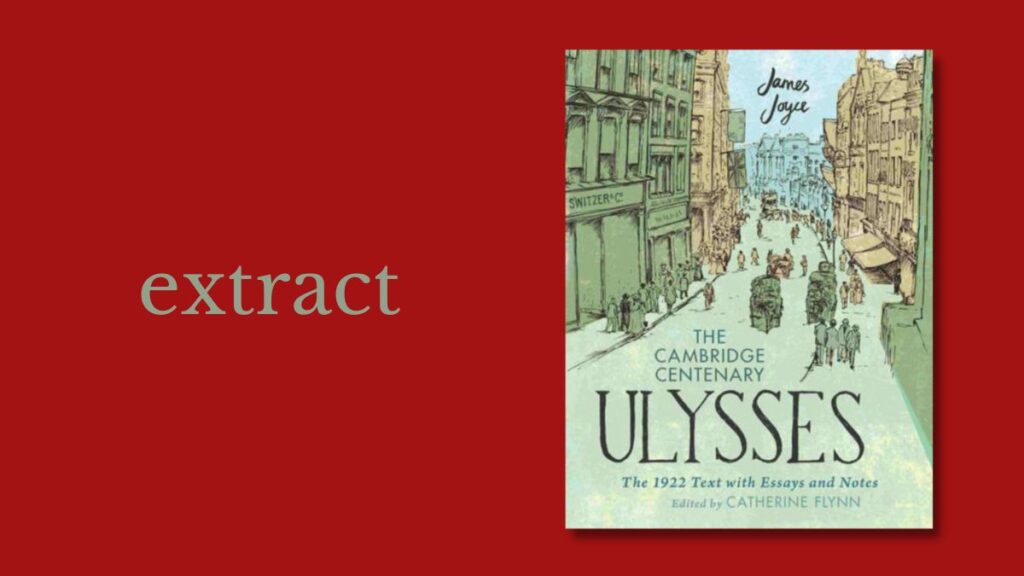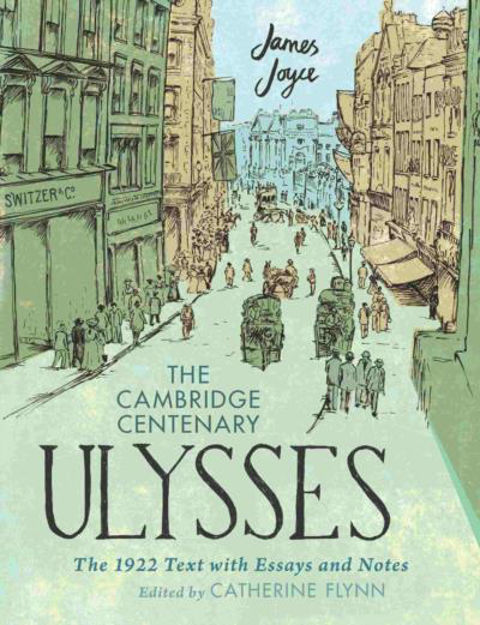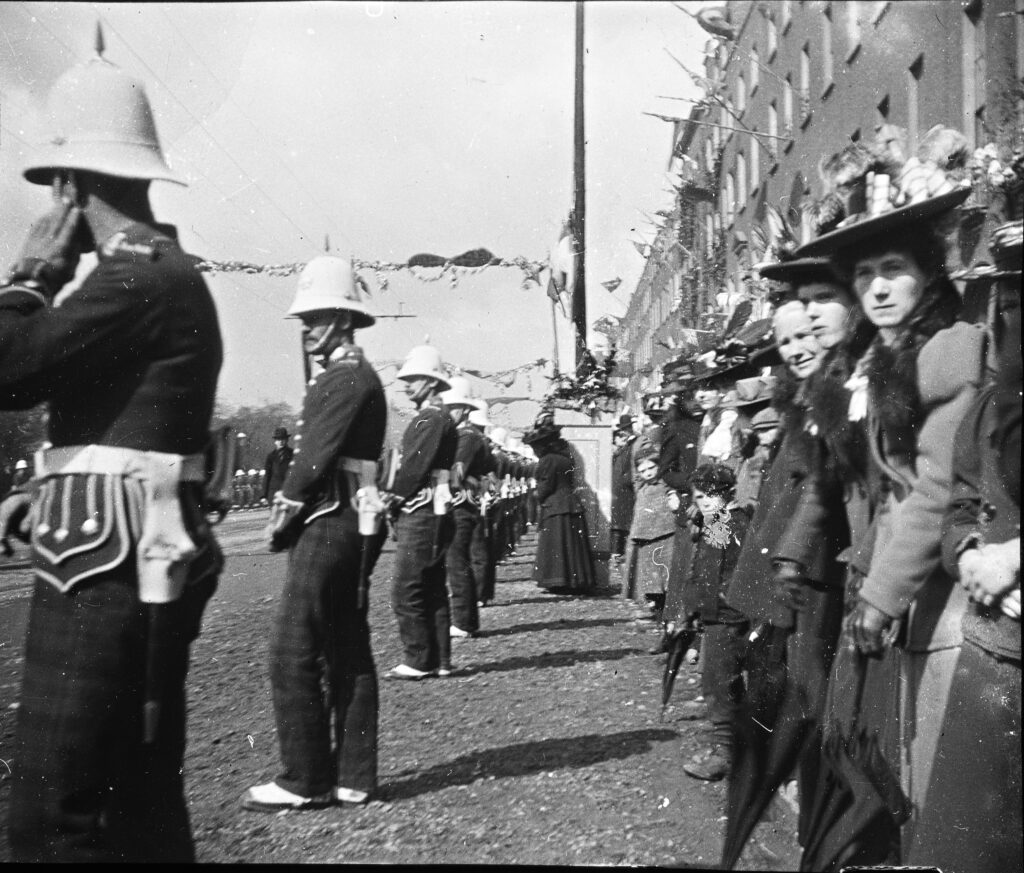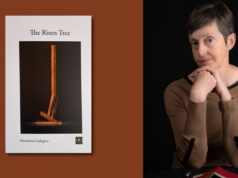
The Cambridge Centenary Ulysses: The 1922 Text with Essays and Notes| Catherine Flynn|Cambridge University Press|ISBN: 9781316515945|£30
The launch of The Cambridge Centenary Ulysses is at 12.30pm at MoLI
Extract from The Cambridge Centenary Ulysses (Cambridge University Press)
Penelope
Ulysses ends in the middle of the night in the bedroom of 7 Eccles Street in the thoughts and memories of Molly Bloom. As she lies next to a sleeping Bloom, her long stream of words creates an unprecedented sense of intimacy with the reader, as well as a sense of her own isolation.
This ending is quite a departure from the Odyssey, which closes in a display of patriarchal strength: Odysseus, flanked by his father and his son, fighting off the Ithacans who rise up against him for killing the hundred local lords who courted his wife and squandered his wealth; only divine intervention ends the conflict. Joyce chooses to end his novel in a domestic space and with a female voice. Why?
In the quiet margins
Does anything even happen in “Penelope”? Yes and no. Molly thinks and remembers. She hears a train go by. She discovers that her menstrual period has begun. She gets up to use the chamber pot, finds a sanitary napkin, and gets back into bed, all the while thinking and remembering.
We might ask, as critics have done, whether the episode is feminist or sexist. Is “Penelope” an unprecedented platform for female consciousness, a groundbreaking representation of the personal, or a representation of a female character on the margins of the action, with a focus on the limits of her woman’s body? The episode is all of these things and its achievement, Molly’s achievement, is made through them. “Penelope,” in the quiet margins of Ulysses, is the novel’s culmination.
Joyce’s intentions
Richard Ellmann gives us a brief and undocumented account of Joyce’s intentions for the episode: “At first he thought of constructing the chapter out of a series of letters written by Molly Bloom, but he soon saw that it must be a female monologue to balance Stephen’s male monologue earlier in the book” ( JJ 501).
This prompts us to ask if Molly, lying awake in the middle of the night, also offers an answer to the problems articulated by Stephen Dedalus at the beginning of the novel. As we know well by now, Stephen sees himself as oppressed by two institutions, the Catholic Church and the British Empire, and as in service to a third entity that he never names.
Throughout Ulysses, we witness his struggle for autonomy, which reaches a dramatic and futile climax in his smashing of the lamp in Bella Cohen’s brothel, and which finds further, somewhat disheartening expression in his refusal of Bloom’s offer of shelter for the night. But we find an answer to his problems in Molly’s idiosyncratic expression in a life that has been thoroughly determined for her, in the episode’s play and constraint.

Molly
The daughter of Royal Dublin Fusiliers drum-major Brian Cooper Tweedy, Molly has an intimate knowledge of the British Empire. She grew up on the island of Gibraltar, a key colonial holding at the mouth of the Mediterranean, “the center of the military life of England.” (1)
In her girlhood, Molly was surrounded by imperial ideology, lighting the pipes of her father and his friend Captain Groves as they talked about “Rorkes drift and Plevna and sir Garnet Wolseley and Gordon at Khartoum” (708; 18:690–91).
She exchanged one British colony for another in moving from Gibraltar to Dublin. (2) As a grown woman in Dublin, she signals support for the British in the Boer War (1899–1902) by singing Rudyard Kipling’s “The Absentminded Beggar” and wearing a brooch for commander-in-chief Lord Roberts, actions which cause her to be dropped from future performances at St Teresa’s Hall in favor of singers of an Irish nationalist cast.

Female body
In addition to imperial rule, Dublin is also subject to the rule of the Catholic Church. Whereas Stephen refused to pray with his dying mother, visits brothels, and quotes the atheist philosopher Friedrich Nietzsche, Molly goes to confession, is married, and sometimes, perhaps unthinkingly, prays. Her third master is the condition of being a woman in lower middle-class 1904 Dublin.
In “Penelope,” Molly thinks as a person thrust into a female body, trying to make sense of it. She laments the constraints of her body and her gender: “God knows theres always something wrong with us 5 days every 3 or 4 weeks usual monthly auction isnt it simply sickening” (719; 18:1108–10).
She remembers the labor of birth and breastfeeding, “what I went through with Milly nobody would believe” (694; 18:158–59), and wonders why women have the bodies that they do: “whats the idea making us like that with a big hole in the middle of us” (694; 18:151–52).
She remembers the friendships she enjoyed with Catherine Flynn Josie Breen and Hester Stanhope before the pressures of courtship and marriage separated them. She thinks of the loneliness of married women’s lives, envying men’s social freedom, “they have friends they can talk to weve none” (728; 18:1456–57).
She doesn’t identify entirely with the female parts of her body but looks appreciatively on her soft skin, her plump breasts and buttocks. She thinks of the pleasure men take in women and envies them, “God I wouldnt mind being a man and get up on a lovely woman” (720; 18:1146–47).
- Susan Bazargan, “Mapping Gibraltar: Colonialism, Time, and Narrative in ‘Penelope,’” in Molly Blooms: A Polylogue on “Penelope” and Cultural Studies, ed. Richard Pearce (Madison and London, University of Wisconsin Press, 1994), 119–38. 9781316515945c18_p882-935.indd 882 28/01/22 4:49 PM “Penelope” · 883
- Discussions of Ulysses that are concerned with Ireland’s colonial status, despite it being part of the United Kingdom, include Vincent J. Cheng’s Joyce, Race, and Empire (Cambridge: Cambridge University Press, 1995) and Derek Attridge and Marjorie Howes, eds., Semicolonial Joyce (Cambridge: Cambridge University Press, 2000)












